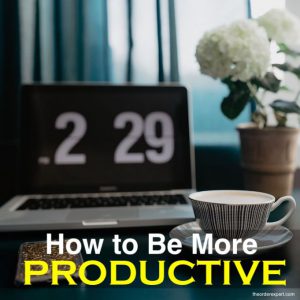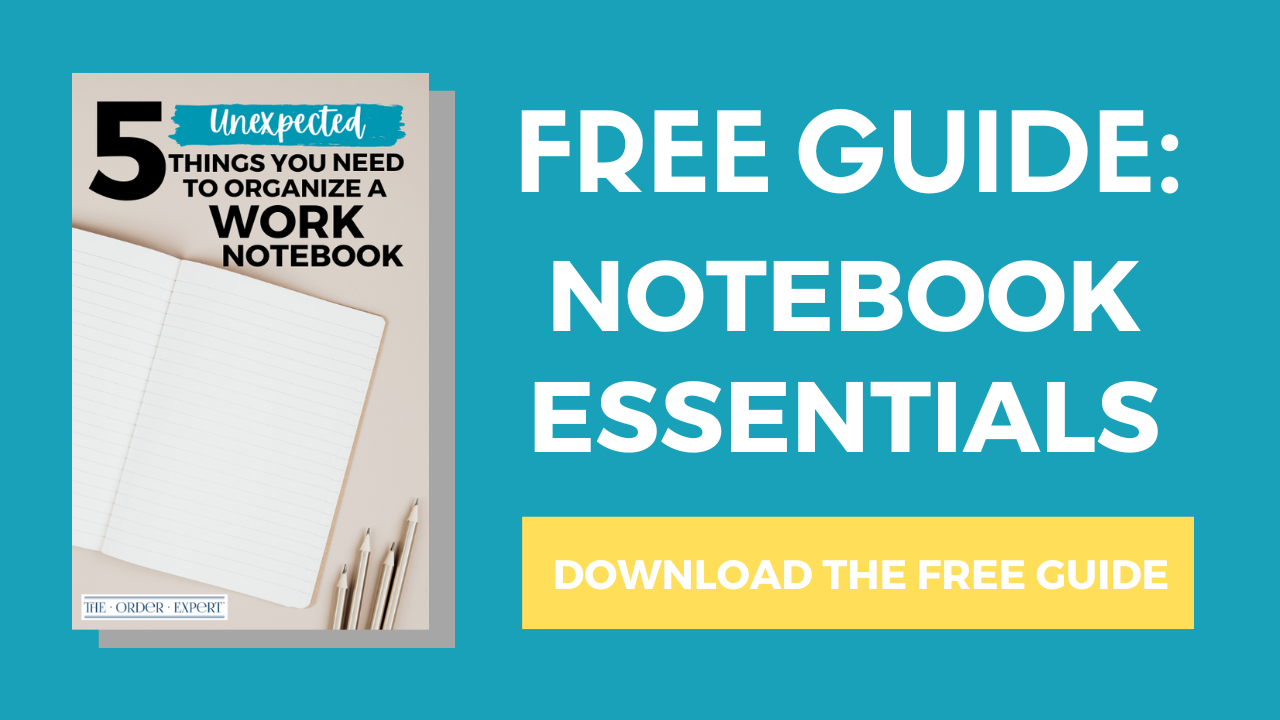
Do you want to increase your productivity levels?
Maybe you want to be more productive at home, work, or school.
When it comes to dealing with productivity issues, it often pays to take a multi-faceted approach.
While straightforward productivity tips are helpful, sometimes you need to delve a bit deeper to get to the heart of the matter.
For example, there may be instances where you may need to learn new skills, correct poor habits, and be consciously aware of how you spend your minutes and hours.
So, how can you get started?
In this post, I offer several thoughtful tips on how to be more productive.
These tips will help you look at a productivity in a new light.
You may be pleasantly surprised at you find when you truly take these tips to heart!
Learn how to prioritize.
Prioritization will always be a hot topic in the realm of productivity, but what really is prioritization? At first glance, you may think it is just about assigning a rank or value to items on our to-do or task lists. For example, you can prioritize items on a list by ranking the first item as the most important, and the third item on the list as least important.
But here’s the kicker: prioritization means you are identifying what is important at this point in time. Not yesterday, not two weeks ago, but now. It’s all about living in the present moment and making decisions based on the information and resources you have available to you at this very moment. Even tasks prioritized say, yesterday, can have an entirely different prioritization level today.
How can you better prioritize your tasks and to-dos? One way is to use a tool called the Eisenhower Box, or decision matrix. The Eisenhower box is a large box, divided into four separate quadrants, with each quadrant representing a task’s urgency and importance. You simply assign tasks into one of the four quadrants, thereby prioritizing the tasks, and begin working on the most important task.
If you have trouble identifying which of your tasks are truly urgent and important, you really should give this helpful tool a try! You can learn more about using the Eisenhower Box by clicking here.
Get to the root of your productivity problems.
No amount of productivity tips or lifehacks can ever help you if you consciously ignore the root cause of your productivity problems. You have to actively look for, and solve, what is truly wasting your time, resources, and energy. Many of our productivity problems arise because we ignore our immediate environment, work habits, and tools, and fail to make necessary adjustments.
What are some examples of this? If you’re studying in an area of the library that a lot of foot traffic and noise, you’d probably want to find a quieter floor, or a different time of day to study (immediate environment productivity problem).
If you don’t feel alert enough to write a coherent email before lunch, now might be a good time to delete some emails from your inbox (work habit productivity problem).
Or, if you use a word processor to track your budget, and realize it is too difficult to make calculations, you’d probably want to switch your tools and use a calculation spreadsheet instead (tool productivity problem).
The next time you find yourself stuck when it comes to getting things done, dig a little deeper to find the true cause of your problems. Ask yourself, “What is truly wasting my time, resources, and energy?” “What action steps can I take to solve this problem?”
Have an anti-procrastination plan.
Here’s a quick question for you: do you know when you are procrastinating during the day? You probably have a fairly good idea as to how, and when, you procrastinate. You might spend your time playing an online game, doing an unnecessary load of laundry, checking your emails, washing your car, or any other number of tasks…except the one task you’re supposed to be working on.
The good news is that if you are aware of your procrastination habits, you can take active steps to get back on track. You may find it helpful to assemble three to five go-to actions to help you snap you out of your procrastination habit. These actions should resonate with you and your personality. Think about it for a moment: what actions will light a fire under your feet to get things done?
Some general anti-procrastination ideas include: blocking or logging out of electronic devices, working with an accountability buddy, reading inspirational quotes or passages, setting small work rewards for yourself, changing your work location, assembling the tools required for your work, or simply diving into your work headfirst.
Ignore unsolicited requests.
It doesn’t matter who you are, or where you’re from, you’ve probably received unsolicited requests at home or work.
Unsolicited requests can come in the form of letters, announcements, advertisements, and offers in postal mail, email messages, phone calls and messages, or text messages. They can take the shape of requesting feedback on a survey, reviewing a book or article, or scheduling an exploratory phone call.
Not only are these types of requests bothersome, but they can end up taking huge amounts of your time and energy. And you know what that means: more time spent dealing with these troublesome requests, and less time working on your projects and assignments. What’s a person to do?
Quite simply, you don’t have to reply to unsolicited requests. Remember: these are unsolicited requests. You didn’t ask to be contacted. Placing your attention on these items are simply a waste of your energy and focus. If you didn’t make a request for information, you can ignore it, delete it, trash it, or recycle it, as you see fit.
How about you? Which of these productivity tips resonated the most with you? What small changes are you going to make in your work, home, or study routines? Join the conversation and leave a comment below!





0 Comments